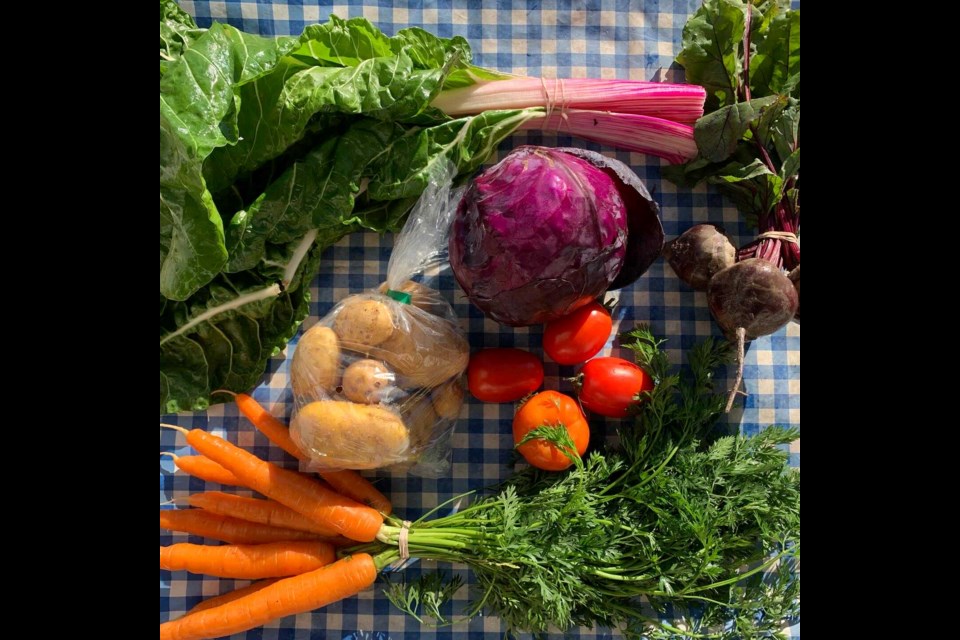Marcelle Paulin and Brendan Grant didn’t think they would choose a career in farming when they met as students at Lakehead University. Paulin says she grew up in a rural area where the schoolbus “smelled like manure,” she says, but she wasn’t interested in farming at all. Grant majored in Outdoor Recreation and Geography, but after graduation, the couple needed to find seasonal work and ended up working on farms in British Columbia.
“We subsequently chose farming as a career,” Paulin explains, “and we realized that the Thunder Bay area would be a great place for us to start.”
The couple purchased an old farm in Pass Lake in 2005 and started Sleepy G Farm. The farm has been certified organic since 2014. “We’re probably the only certified organic farm between Sault Ste. Marie and Manitoba,” Paulin says.
In addition to farming eight acres for vegetables, the farm has a herd of 25 cattle and a flock of a hundred laying hens for eggs and manure. In the summer, the animals graze and fertilize the land, and in the winter, their bedding and manure is collected to compost for two years before being spread in the certified organic fields.
Becoming a certified organic grower isn’t a quick and easy step; certification is a process that takes multiple years and requires meticulous record-keeping. “But it’s not that difficult, it just takes a bit of effort,” Paulin says.
In addition to keeping good records, they need to ensure that all their inputs are approved for organic growing. There isn’t much of an organic “infrastructure” in Northern Ontario, she says, so many items such as fertilizer and soil amendments need to be imported from other provinces or the US. Although not the easiest way to produce food, Paulin says there are upsides to being certified organic.
“Becoming certified organic and having to maintain such detailed records has made our business stronger. We’re able to collect all that information, analyze it and reflect on it. It’s been beneficial to us as producers,” she says. “We’ve had to teach ourselves everything about agriculture, and organic agriculture, from the ground up. It’s a life-long learning experience. But it’s been really valuable to be involved in organics.”
Sleepy G Farm currently has over 250 subscribers for their CSA (Community Supported Agriculture) program in the summer, and over 200 in the winter. “We distribute veggies from July to March each year,” she says. “We were fortunate to build a winter storage cellar and that has allowed us to grow, then store and distribute all winter long.”
“Our business model isn’t so much about selling vegetables,” Paulin says. “We do. But we also sell the idea that agriculture is a possibility, both for people who don’t have the agricultural background, but also here in the north.” Their customers are buying more than just healthy organic food, she believes.
“They’re also buying into the idea of supporting a local farming family. Sleepy G Farm isn’t a big business. It’s Marcelle and Brendan,” she adds.
After 16 years of farming, the couple feel they have reached their stride. “We’ve got a lot of supportive members in the community,” she says.
“We’re also committed to mentoring people like ourselves,” Paulin adds. As active members of the agricultural community in the Thunder Bay area, they are eager to see other people succeed in doing the kind of farming that they do. “We’d like to see more people join us in the movement to grow more nutritious, healthy, local food,” she says.



